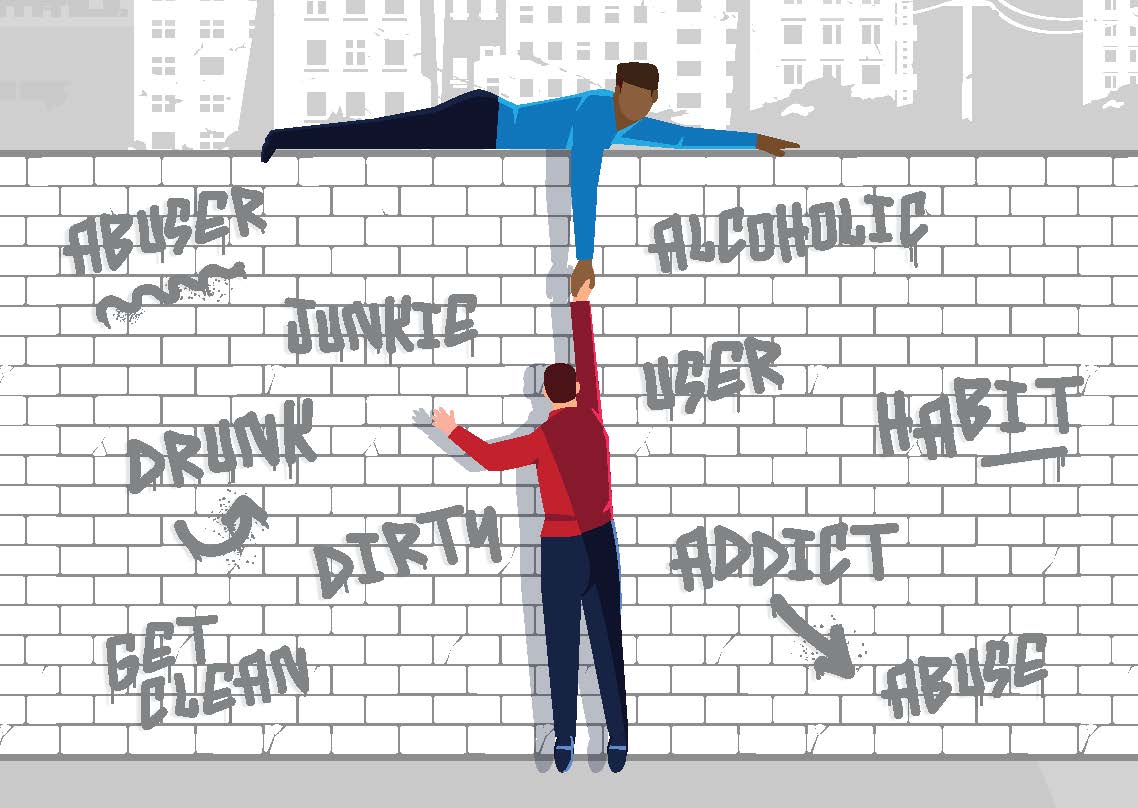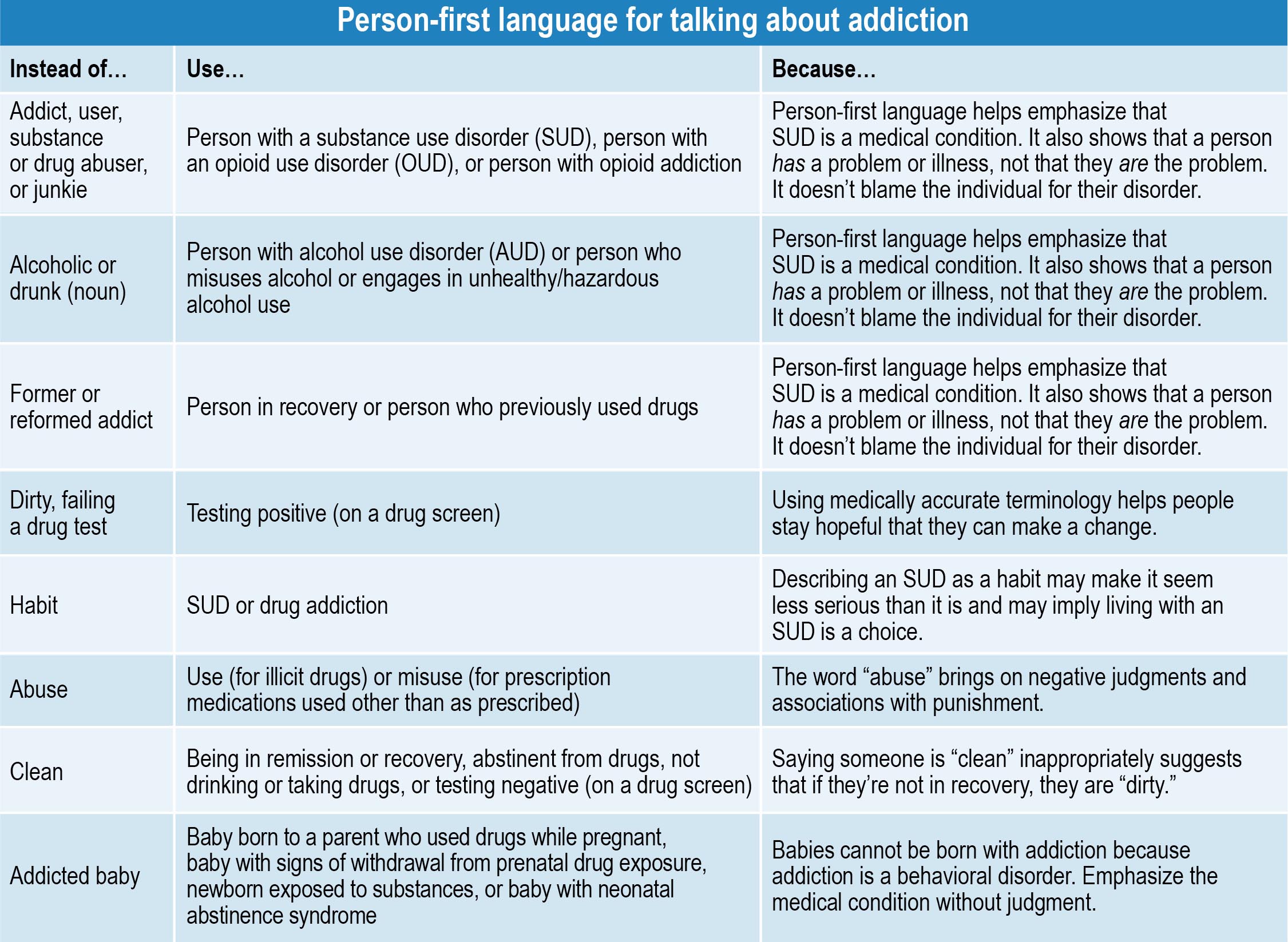
Last updated on December 6th, 2024 at 05:03 pm
Substance use disorders (SUDs) are chronic, treatable conditions that people can recover from, but stigma around them makes it hard to seek treatment. SUDs are very common and can affect anyone, but the disorders are often misunderstood. In 2023, an estimated 16% of people with SUDs reported that they did not seek treatment because they worried about what their community would think.
Stigma refers to negative attitudes about people based on their characteristics. People can also have “internalized stigma,” where they hold negative beliefs about their own traits or features. Internalized stigma can lower self-esteem or increase stress, which are both bad for mental health!
Changing the ways we talk about addiction can help reduce stigma and may even improve treatment outcomes. It’s important to understand why stigma happens and how the words we use to describe addiction matter.
Addiction is a medical disorder, not a moral failing
Addiction is a health condition that can improve with medical treatment. But for much of our history, medical professionals and others incorrectly saw addiction as a character flaw. This has led to bias among health care providers who may give inadequate treatment—or no treatment at all—to people with SUDs.
Since 2013, when clinical guidelines changed, people have started saying “alcohol use disorder” (AUD) instead of “alcohol abuse” or “alcohol dependence.” “SUD” is also replacing terms like “drug abuse.” The newer guidelines acknowledge that AUD and SUD are treatable, that they vary in severity, and that people can recover from them.
Changing medical language is a good start, but changing mindsets takes time. We can help by being more mindful of the way we talk about addiction.
Using person-first language
When talking about addiction, it’s typically best to use neutral, person-first, and person-centered language. This means describing an illness or disorder as only one part of a person’s life rather than defining the person by their condition. For example:
- Instead of calling someone an “alcoholic,” say they are a “person with alcohol use disorder.”
- Instead of saying someone “is an addict,” say that they “have a substance use disorder.”
Next time you need help finding the right words to talk about SUDs, consider using this chart inspired by the National Institute on Drug Abuse:
Learning a “new” addiction language takes time
Simple changes in language can help reduce or avoid harmful stigma around SUDs. It takes work to slow down and choose the right words. Language also changes all the time, and it can be hard to know what’s a helpful or harmful thing to say in every situation. But with practice, you’ll soon be fluent! Here are some tips to help:
- Person-first language is usually the best option.
- Let someone choose how they want to be described. If you’re not sure what words to use, just ask!
- It’s OK to ask questions, but respect their privacy.
- Be open-minded and ready to learn.
- Be kind to others and yourself.
- Call out stigmatizing language when you hear it.

